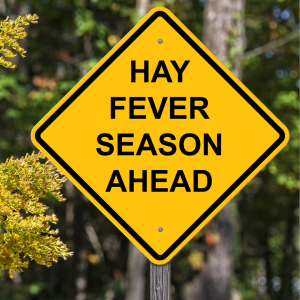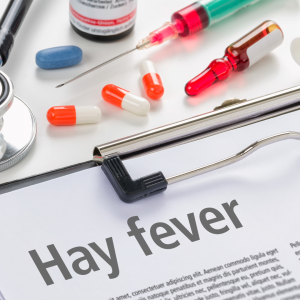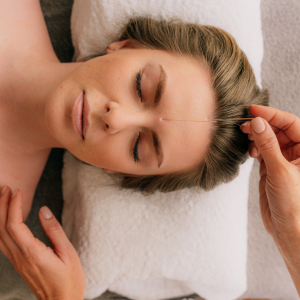 What is hay fever?
What is hay fever?
As we step into the season of spring, allergic rhinitis, normally known as hay fever becomes a common complaint that we see a lot in the clinic. It is not a life threatening illness but can be debilitating for some. In Australia and New Zealand, the condition affects around 18% of people, caused by the nose or eyes coming into contact with allergens in the environment.
Types of hay fever
- Seasonal: symptoms can occur in spring, summer and early autumn. They are usually caused by sensitivity to airborne pollens from trees, grasses or weeds
- Perennial: symptoms occur year-round and are generally caused by sensitivity to air pollutants, dust or dust mites, animal danders (fur, hair and feather), mould or other substances.
Hay fever symptoms
- itchy or watery eyes
- a runny/itchy or congested nose
- frequent sneezing
- postnasal drip resulting in the need to constantly clear your throat
- breathing through the mouth and snoring
These symptoms can be mild to severe, affecting individuals in in varying degrees. If left untreated, it can lead to complications such as sleep disturbance, headaches, daytime tiredness, poor concentration and recurrent ear or sinus infections.
How is hay fever diagnosed?
The diagnosis is normally made by obtaining a detailed description and relevant history of the symptoms. The doctor may also perform physical examination of the eyes, nose and throat to look for signs of irritation and mucus inflammation. Allergy testing can also be conducted to identify the source of allergens through a clinical immunologist or the allergy clinic. However, a positive test result doesn’t prove that the allergen is causing your symptom, only that your body is sensitive to the allergen.
How is hay fever commonly treated?
 Minimise exposure to allergens – once the trigger(s) for your hay fever has been identified, it is important to reduce your exposure to them. For example, if pollens/grass are causing your symptoms, here are some useful tips:
Minimise exposure to allergens – once the trigger(s) for your hay fever has been identified, it is important to reduce your exposure to them. For example, if pollens/grass are causing your symptoms, here are some useful tips:
- Stay indoor until after midday, especially when the pollen count is high, it’s windy or after thunderstorm.
- Wear protective glasses and rinse your eyes with water when you get home.
- Avoid mowing and playing or walking in grassy areas.
- Keep the windows closed at home and when travelling in the car and use circulating air conditioning instead.
- Nasal irrigation
- Saltwater nasal spray or douches can be very helpful in providing relief for hay fever symptoms.
- Medicine
- While hay fever cannot be cured, medicines are commonly used to alleviate symptoms. These include intranasal corticosteroids to reduce inflammation in the lining of the nose, decongestant spray to dry up and unblock the sinus and antihistamines to reduce allergic reactions.
How can Acupuncture and Chinese medicine support you with hay fever?
In Chinese medicine, traditionally no distinction was made between infectious or allergic rhinitis. From a Chinese medicine point of view, the sinus symptoms are usually triggered by invasion of external pathogens and are classified according to the types of manifestation:
- Nasal irritation and sneezing is considered Wind.
- Clear nasal discharge is considered Cold.
- Yellow or green discharge is considered Heat
 These external pathogens can be well managed by acupuncture and herbs when we not only treat the manifested symptoms, but also address the root cause.
These external pathogens can be well managed by acupuncture and herbs when we not only treat the manifested symptoms, but also address the root cause.
The progression and recovery of disease however, depends on the internal body condition especially when there are underlying imbalances and organ dysfunctions. In Chinese medicine, the most commonly involved organs in allergic rhinitis are the Lungs which pervades the body surface with protective energy (Qi) and opens to the nose; the Stomach and Spleen which nourish the body and communicates with the head; and the Liver which governs the circulation, regulates immunity and connects to the eyes.

